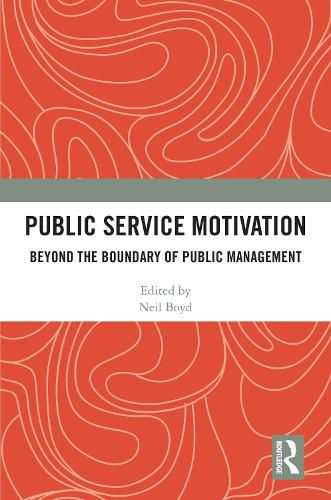Readings Newsletter
Become a Readings Member to make your shopping experience even easier.
Sign in or sign up for free!
You’re not far away from qualifying for FREE standard shipping within Australia
You’ve qualified for FREE standard shipping within Australia
The cart is loading…






This book evaluates public service motivation (PSM) within the milieu of a broader conceptual and theoretical landscape beyond public management with a primary focus in management and the social sciences.
As the literature around public management has evolved, scholars have suggested that PSM can direct applicants toward public service-oriented careers, and once hired, many have posited that PSM is linked to psychological outcomes and behavioral activity within public service-oriented organizations. Although some scholars have attempted to characterize and study PSM in relation to concepts outside of public management, the vast majority of scholarship has been grounded specifically in the public management literature. This is true when characterizing PSM as a factor that relates to career choice as well as a predictor of motivated states once one occupies a role within an organization. Given its continued vigor and its legitimacy, it could be argued that in recent decades, PSM has indeed become one of the most prominent concepts in public management. This book will be of interest to researchers and students in the fields of public management and public administration, as well as to policy makers and public service managers.
The chapters in this book were originally published in Public Management Review.
$9.00 standard shipping within Australia
FREE standard shipping within Australia for orders over $100.00
Express & International shipping calculated at checkout
Stock availability can be subject to change without notice. We recommend calling the shop or contacting our online team to check availability of low stock items. Please see our Shopping Online page for more details.
This book evaluates public service motivation (PSM) within the milieu of a broader conceptual and theoretical landscape beyond public management with a primary focus in management and the social sciences.
As the literature around public management has evolved, scholars have suggested that PSM can direct applicants toward public service-oriented careers, and once hired, many have posited that PSM is linked to psychological outcomes and behavioral activity within public service-oriented organizations. Although some scholars have attempted to characterize and study PSM in relation to concepts outside of public management, the vast majority of scholarship has been grounded specifically in the public management literature. This is true when characterizing PSM as a factor that relates to career choice as well as a predictor of motivated states once one occupies a role within an organization. Given its continued vigor and its legitimacy, it could be argued that in recent decades, PSM has indeed become one of the most prominent concepts in public management. This book will be of interest to researchers and students in the fields of public management and public administration, as well as to policy makers and public service managers.
The chapters in this book were originally published in Public Management Review.